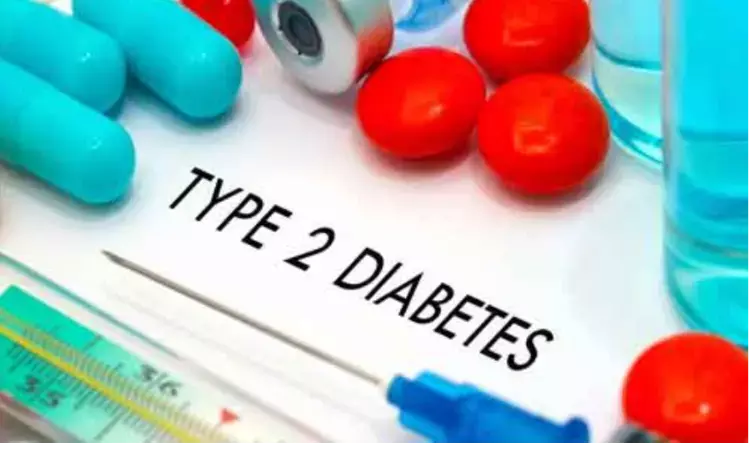- Home
- Medical news & Guidelines
- Anesthesiology
- Cardiology and CTVS
- Critical Care
- Dentistry
- Dermatology
- Diabetes and Endocrinology
- ENT
- Gastroenterology
- Medicine
- Nephrology
- Neurology
- Obstretics-Gynaecology
- Oncology
- Ophthalmology
- Orthopaedics
- Pediatrics-Neonatology
- Psychiatry
- Pulmonology
- Radiology
- Surgery
- Urology
- Laboratory Medicine
- Diet
- Nursing
- Paramedical
- Physiotherapy
- Health news
- Fact Check
- Bone Health Fact Check
- Brain Health Fact Check
- Cancer Related Fact Check
- Child Care Fact Check
- Dental and oral health fact check
- Diabetes and metabolic health fact check
- Diet and Nutrition Fact Check
- Eye and ENT Care Fact Check
- Fitness fact check
- Gut health fact check
- Heart health fact check
- Kidney health fact check
- Medical education fact check
- Men's health fact check
- Respiratory fact check
- Skin and hair care fact check
- Vaccine and Immunization fact check
- Women's health fact check
- AYUSH
- State News
- Andaman and Nicobar Islands
- Andhra Pradesh
- Arunachal Pradesh
- Assam
- Bihar
- Chandigarh
- Chattisgarh
- Dadra and Nagar Haveli
- Daman and Diu
- Delhi
- Goa
- Gujarat
- Haryana
- Himachal Pradesh
- Jammu & Kashmir
- Jharkhand
- Karnataka
- Kerala
- Ladakh
- Lakshadweep
- Madhya Pradesh
- Maharashtra
- Manipur
- Meghalaya
- Mizoram
- Nagaland
- Odisha
- Puducherry
- Punjab
- Rajasthan
- Sikkim
- Tamil Nadu
- Telangana
- Tripura
- Uttar Pradesh
- Uttrakhand
- West Bengal
- Medical Education
- Industry
Sotagliflozin use linked to reduced risk of heart attack, heart failure and stroke in diabetics: Study

Sotagliflozin is not FDA approved and if it is brought to the market, it would signify a major advance in the care of patients with diabetes, especially those with heart failure or kidney disease.
USA: Early use of sotagliflozin may reduce the risk of heart failure, heart attack, and stroke in type 2 diabetes patients with chronic kidney disease or heart failure, show results from two large clinical trials. Sotagliflozin is a drug that inhibits sodium-glucose transport protein 2 (SGLT2) and sodium-glucose transport protein 1 (SGLT1).
The findings from the SCORED and SOLOIST trials were presented at the 81st Scientific Sessions of the American Diabetes Association (ADA).
Patients with diabetes are at an increased risk of life-threatening conditions such as chronic kidney disease and heart failure. In fact, diabetes is the leading cause of kidney failure1 and the rate of heart failure for patients with diabetes is four times higher than the general population—highlighting the need to address these comorbidities within standard of care.
Less than a decade ago, the Food and Drug Administration (FDA) approved drugs for treating type 2 diabetes in an entirely new way using SGLT2 inhibitors to help the body eliminate blood sugar via urine, offering enhanced blood sugar (blood glucose) control, cardiovascular benefits, and weight loss for people with diabetes taking the drug. Another effective and complementary mechanism of action uses SGLT1 inhibition to reduce blood sugar via the digestive tract. Combination SGLT2 and SGLT1 inhibitors are currently being studied and none have been approved by the FDA.
Building on the evidence of this new class of drugs, the SCORED and SOLOIST trials evaluate the benefits of a combination drug that inhibits both SGLT2 and SGLT1 in patients experiencing kidney failure or heart failure.
Trial data come from SOLOIST, which randomized 1,222 people with type 2 diabetes who had been recently hospitalized for worsening heart failure. SCORED, a much broader 10,584 patient trial, studied the drug's ability to prevent cardiovascular events in people with diabetes and chronic kidney disease. Both studies were published in The New England Journal of Medicine and demonstrate the benefit of using an SGLT1/2 inhibitor drug for people with type 2 diabetes.
Paired analysis of SCORED and SOLOIST found:
- SCORED: SGLT1/2 inhibitors provides benefits across the full range of albuminuria, a sign of kidney disease that involves an excess of protein in urine, and decrease the chance of heart attack by 32% and of stroke by 34%.
- SOLOIST: SGLT1/2 inhibitors are safe and effective when initiated in patients hospitalized with acute heart failure and early, in-hospital initiation of SGLT2 inhibitors is safe and effective for people with type 2 diabetes and heart failure, reducing the risk of death from cardiovascular causes and hospitalization or urgent visits for heart failure by 33%.
"The results presented today add to the growing body of evidence demonstrating the overall benefit of this new class of glucose-lowering agents. It is now clear that most patients with type 2 diabetes and either kidney disease or heart failure should be assessed for initiation of an SGLT inhibitor," said Deepak L. Bhatt, MD, MPH, Executive Director of Interventional Cardiovascular Programs, Brigham and Women's Hospital, and Professor of Medicine, Harvard Medical School. "Our findings are the first of their kind, with this investigational drug demonstrating a benefit in people with diabetes across all the different types of heart failure."
The authors indicate that sotagliflozin is not FDA approved and that if it is brought to the market, it would signify a major advance in the care of patients with diabetes, especially those with heart failure or kidney disease.
Dr Kamal Kant Kohli-MBBS, DTCD- a chest specialist with more than 30 years of practice and a flair for writing clinical articles, Dr Kamal Kant Kohli joined Medical Dialogues as a Chief Editor of Medical News. Besides writing articles, as an editor, he proofreads and verifies all the medical content published on Medical Dialogues including those coming from journals, studies,medical conferences,guidelines etc. Email: drkohli@medicaldialogues.in. Contact no. 011-43720751


